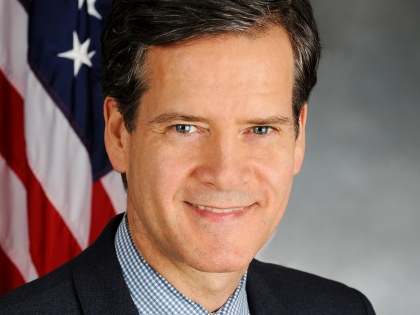
Testimony of Senator Hoylman-Sigal to the New York City Council Committee on Aging and Committee on Criminal Justice Regarding Resolution 241
February 17, 2023
Good morning, members of the Committee on Aging and the Committee on Criminal Justice. Thank you for the opportunity to submit testimony to the New York City Council regarding Resolution 241, which calls upon the New York State Legislature to pass, and the Governor to sign, Fair and Timely Parole and Elder Parole.
I am State Senator Brad Hoylman-Sigal, representing the 47th Senate District. I am the lead sponsor of Elder Parole (S.2423) and a co-sponsor of S.307, Fair and Timely Parole. Thank you for being here today to delve into these two life-saving bills.
My Elder Parole bill, which I carry with Assembly Member Davila, helps remedy punitively long and ineffective sentences by guaranteeing a parole hearing for those 55 and older that have served at least 15 years. Senator Salazar’s Fair and Timely Parole bill provides a more meaningful parole review process for incarcerated people who are already parole-eligible. It ensures that individuals are evaluated for release based on who they are today—accounting for their rehabilitation, personal transformation, and their current risk of violating the law.
We sponsor these bills because long prison sentences without a meaningful chance for parole don’t keep New Yorkers safer or deter crime. They just keep people languishing in jail cells for decades after they’ve been rehabilitated.
There are roughly 9,000 New Yorkers serving life sentences, surpassing states like Texas and Georgia. 3,500 New Yorkers in state prisons have already served 20 years. Roughly 1 in 4 are now 50 or older. And the average age of death in New York state prisons is 58 years old. We no longer have the death penalty here in New York, but the new death sentence is death-by-incarceration.
The need for Elder Parole is higher than ever. Over the last two decades, the number of incarcerated elder New Yorkers has more than doubled to over 10,000—even as the overall prison population has fallen by 30%. In fact, last year New York State Comptroller DiNapoli released a report that found that from 2011 to 2018 alone, 675 elder New Yorkers died in a New York state prison. Comptroller DiNapoli stated that, “policymakers should examine opportunities to reduce the population of incarcerated individuals 50 and over where public safety would not be compromised.” That’s exactly what we are doing here today. The solution lies in promoting hope, healing, and accountability to stop cycles of violence and support victims and survivors. The solution lies in Parole Justice.
Studies have shown that the odds of an elder individual committing a crime after release from prison are incredibly low at 5%—the lowest recidivism rate of any age cohort. Additionally, Elder Parole and Fair and Timely Parole will save the State an estimated $522 million per year. Let me put this in perspective by uplifting what United Neighborhood Houses noted in their written testimony at our Parole Justice Hearing at the end of last year: $522 million is greater than the entire budget of the New York City Department for the Aging, which supports hundreds of thousands of older adults through contracted services such as over 300 senior centers, home delivered meals, and case management.
That’s a staggering statistic. Just think what we could be doing to serve older New Yorkers instead of keeping them locked up. We could instead spend this money on programs to help incarcerated New Yorkers be set up for success after their sentences end, for example.
However, this is about more than just the State’s bottom line. We have a crisis of death in our state prisons. Columbia University Center for Justice published a study in 2021 that found a 777% increase since the 1980s in deaths behind bars of people who have served 15 or more years, and that 56% of deaths behind bars in the last decade were among those age 55 or older. This is unacceptable. Our elders have done their time. They have changed, grown, and repented. We must give them the opportunity to honor their rehabilitation.
No one—on the right or left—wants dangerous individuals on our streets. But keeping people locked up after they have more than done their time and denying them access to a parole hearing doesn’t make our communities safer. Permanent punishment is a barrier to accountability. Accountability means more than just punishment—it means changing one's behavior. A parole system that provides hope also promotes healing. We must stop throwing our people—and our dollars—into these dungeons and instead invest in supporting people’s return to their communities.
Thank you for the opportunity to speak today. I urge the committees to pass this resolution and thank you for your dedication to Parole Justice.